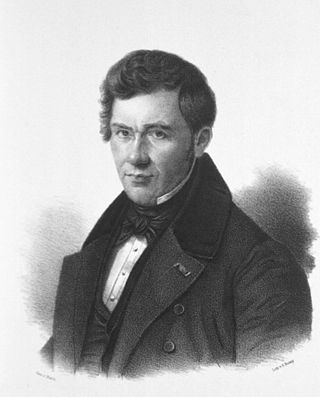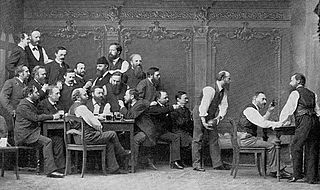
Moritz Steinschneider was a Moravian bibliographer and Orientalist.

Walter or Walther of Aquitaine is a king of the Visigoths in Germanic heroic legend.
Hermann Ulrich Kantorowicz was a German jurist.

The Treaty of Templin was concluded on 24/25 November 1317, ending a war between the Margraviate of Brandenburg and Denmark, the latter leading a North German alliance. During this war, Brandenburgian margrave Waldemar and his troops were decisively defeated in the 1316 Battle of Gransee, fought at Schulzendorf between Rheinsberg and Gransee. After the battle, Brandenburg was forced to negotiate a truce. The treaty of Templin was signed a year later by Danish king Erich VI Menved, his ally duke Henry II of Mecklenburg, and Waldemar.
Borlet was a 14th- and 15th-century composer whose life we know extremely little about. It is thought that his name is an anagram of Trebol, a French composer who served Martin of Aragon in 1409 at the same time as Gacian Reyneau and other composers in the Codex Chantilly.

Franz Mone was a historian and archaeologist.

Justus Friedrich Karl Hecker was a German physician and medical writer, whose works appear in medical encyclopaedias and journals of the time. He particularly studied disease in relation to human history, including plague, smallpox, infant mortality, dancing mania and the sweating sickness, and is often said to have founded the study of the history of disease.
Hezilo of Hildesheim, also known as Hezelo, Hettilo or Ethilo, was Bishop of Hildesheim from 1054 to 1079.

The Academy of Sciences and Literature is a scientific academy in Mainz, Germany. It was established in 1949 on an initiative of Alfred Döblin. The academy's goal is to support science and literature, and in doing so to help preserve and promote culture.

The lokator was a medieval sub-contractor, who was responsible to a territorial lord or landlord for the clearing, survey and apportionment of land that was to be settled. In addition, he hired settlers for this purpose, provided their means of subsistence during the transitional period and made materiel and implements available, such as seed, draught animals, iron ploughs, etc. He thus played a key role during the establishment of new towns and villages, as well as the clearing of uncultivated land during the phase of internal colonisation (Binnenkolonisation) in North German and the German Ostsiedlung and participated in its success.

Michael Matheus is a German historian.
Karl Manitius was a German historian.

Lorenz Hubert Weinrich is a German historian.

Franz Rühl was a German historian who published numerous works in the field of classical history. He was a son-in-law to anatomist Jacob Henle.
Eido I, also Ido, Eid or Ägidius, was the bishop of Meissen from 992 to 1015.
Heiko Steuer is a German archaeologist, notable for his research into social and economic history in early Europe. He serves as co-editor of Germanische Altertumskunde Online.
Sister-books is the term for a group of texts in the medieval literature. These works were written by Dominican nuns in the first half of the fourteenth century in South Germany and Switzerland. They relate the mystical experiences of sisters within the monastery, and were influential in the development of medieval mysticism.
Adelaide of Weimar-Orlamünde was the daughter of Otto I of Meissen and a member of the family of the counts of Weimar and Orlamünde. She married successively, Adalbert II of Ballenstedt, count palatine Herman II, and Henry of Laach.
Joseph Hansen was an influential German historian of witchcraft persecutions, and an archivist in the city of Cologne, where at the age of 80 he was killed, along with his wife, by the bombs of World War II.
Martin Staehelin is a Swiss musicologist and university lecturer.
This page is based on this
Wikipedia article Text is available under the
CC BY-SA 4.0 license; additional terms may apply.
Images, videos and audio are available under their respective licenses.









